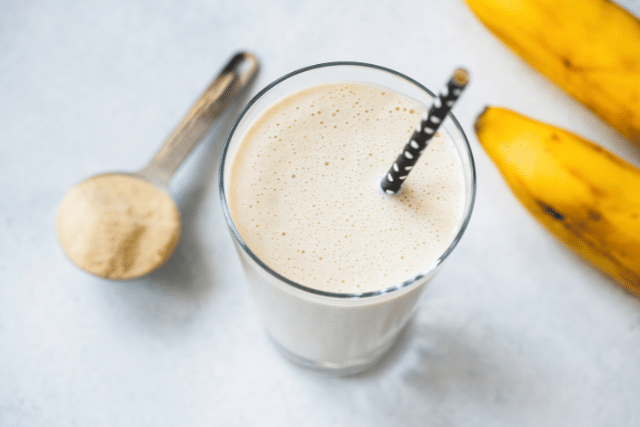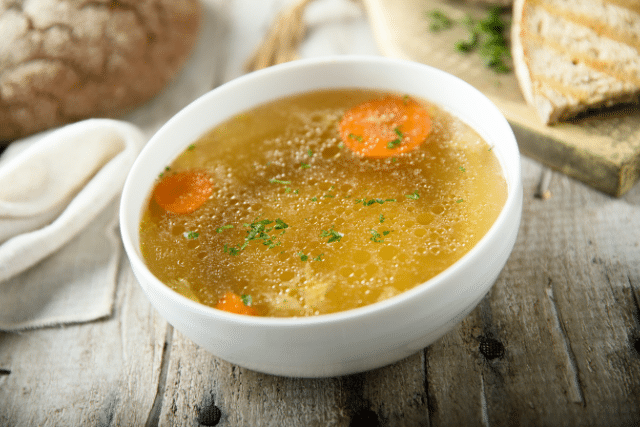The pre-op liquid diet is a critical step in preparing for bariatric surgery, such as the gastric sleeve or gastric bypass. This phase ensures your liver shrinks, making the procedure safer and more effective. Additionally, the diet helps kickstart weight loss, promotes hydration, and supports the transition to healthier eating habits. In this blog, we’ll explore gastric sleeve pre-op liquid diet recipes, key tips, and the benefits of following your surgeon‘s recommendations, including meal replacement options.
What is the Pre-op Op Liquid Diet?
The pre-op liquid diet is designed to prepare your body for surgery. Patients typically consume clear, full, and protein shakes to meet their nutritional needs and reduce fat around the liver and stomach. By following the diet strictly, you can minimize potential complications and improve healing after surgery.
The duration of this phase may vary depending on your doctor‘s instructions, but it generally lasts about two weeks. You’ll focus on consuming low-fat, sugar-free, and non-carbonated liquids while avoiding caffeine and solid foods.
Benefits of the Pre-Op Liquid Diet
- Liver Shrinking Diet: Reducing the size of your liver creates more space for the surgeon, improving safety during the procedure.
- Weight Loss: The diet helps you begin your journey toward a healthier BMI.
- Body Preparation: Your stomach adapts to smaller amounts, making the post-op transition easier.
- Reducing Risks: Following the diet lowers the chances of complications during and after surgery.
- Building Healthy Habits: This phase helps patients establish routines for meal planning and mindful drinking.
Pre-Op Liquid Diet Basics
Your diet will primarily consist of the following nutrients:
- Clear Liquids: Broth, sugar-free fruit juice, water, decaf tea, and caffeine-free drinks.
- Full Liquids: Skimmed milk, protein-enriched soups, and low-fat cream-based options.
- Protein Shakes: These are essential to meet your nutritional needs and ensure you feel full.
- Sugar-Free Drinks: Keep your hydration levels up with options that don’t add unnecessary calories.
Foods to avoid include carbonated beverages, caffeinated drinks, and anything solid.
Navigating the Full Liquid Diet
Navigating the complete liquid diet can be challenging, but with the right mindset and strategies, you can complete this phase of your weight loss journey. Here are some tips to help you navigate the full-liquid diet:
- Understand the Purpose: The complete liquid diet prepares your body for surgery by reducing fat around the liver and stomach. This helps make the procedure safer and more effective, setting the stage for successful weight loss.
- Stay Hydrated: Drinking plenty of water and other low-calorie liquids is crucial. Hydration supports overall health and helps manage hunger, making it easier to stick to the diet.
- Eat Small, Frequent Meals: Consuming small, frequent meals can help manage hunger and stabilize your energy levels. This approach also reduces the risk of complications by preventing overeating.
- Avoid High-Calorie and High-Fat Foods: Stick to low-fat, low-calorie options to maximize weight loss and minimize the risk of complications. This includes avoiding foods not part of the pre-op diet plan.
- Follow Your Pre-Op Diet Plan: Adhering to the diet plan recommended by your bariatric team ensures you get the necessary nutrients while preparing your body for surgery. This plan is tailored to your specific needs and goals.
- Stay Committed: It’s normal to encounter setbacks, but staying committed to your liquid diet is essential for success. Keep your weight loss goals in mind and seek support from your healthcare team if needed.
By following these tips, you can navigate the full liquid diet with confidence and set yourself up for a successful weight loss surgery.
Simple Pre-Op Liquid Diet Recipes

Recipe 1: Creamy Protein Shake
This high-protein shake is perfect for a quick meal during the pre-op liquid diet phase.
Ingredients:
- 1 cup unsweetened almond milk
- 1 scoop vanilla protein powder
- ½ banana (optional for flavor)
- 1 teaspoon peanut butter (low-fat)
- 1 cup ice cubes
Instructions:
- Combine all ingredients in a blender.
- Blend until smooth and creamy.
- Serve immediately. Enjoy as a satisfying, low-fat meal replacement.
Benefits: This recipe is packed with protein to support your body’s nutritional needs and keep you full longer.

Recipe 2: Broth-Based Soup with Protein
This savory soup is an excellent addition to your pre-op diet, offering warmth and essential nutrients.
Ingredients:
- 1 cup chicken broth (low-sodium)
- 1 scoop unflavored protein powder
- 1 tablespoon light soy sauce
- Dash of ground ginger
- Dash of garlic powder
- 1 teaspoon green onion (optional)
Instructions:
- Heat the broth in a small saucepan over medium heat.
- Gradually stir in the protein powder until fully dissolved.
- Add soy sauce, ginger, and garlic powder for flavor.
- Serve warm and garnish with green onions, if desired.
Benefits: This dish provides hydration, protein, and a satisfying savory flavor to break up sweet shakes.

Recipe 3: Fruit-Infused Hydration Drink
This refreshing drink is ideal for maintaining hydration during the liquid diet phase.
Ingredients:
- 4 cups water
- 1/2 cup sliced cucumber
- 1/2 cup sliced strawberries
- 1/4 cup mint leaves
- Juice of 1 lemon
Instructions:
- Combine all ingredients in a large pitcher.
- Refrigerate for at least 2 hours to allow flavors to infuse.
- Serve chilled and enjoy throughout the day.
Benefits: This drink keeps you hydrated, supports the liver-shrinking diet, and offers a flavorful alternative to plain water while meeting your nutritional needs.
Supplements and Vitamins on a Liquid Diet
Supplements and vitamins are essential to the liquid diet, ensuring you get the necessary nutrients while preparing for weight loss surgery. Here are some tips to help you choose the right supplements and vitamins:
- Consult with Your Bariatric Team: Your healthcare team can recommend the best supplements and vitamins for your needs. They will consider your overall health, dietary restrictions, and nutritional requirements.
- Choose Sugar-Free and Caffeine-Free Options: To avoid unnecessary calories and potential complications, opt for sugar- and caffeine-free supplements. This helps maintain the integrity of your liquid diet.
- Consider a Multivitamin: A high-quality multivitamin can help you receive a broad spectrum of essential nutrients. This is particularly important during the liquid diet phase when your food intake is limited.
- Follow Recommended Dosages: Adhering to the recommended dosages for each supplement and vitamin is crucial. Over- or under-consumption can lead to imbalances and affect your overall health.
- Stay Committed: Consistently taking your supplements and vitamins as directed supports your overall health and enhances the effectiveness of your weight loss efforts. Make it a daily routine to ensure you don’t miss any doses.
Incorporating the right supplements and vitamins into your liquid diet can support your body’s nutritional needs and enhance your weight loss journey. Always follow the guidance of your bariatric team to ensure optimal results.
Tips for Success on the Pre-Op Liquid Diet
- Plan Your Meals: Meal planning and preparing recipes in advance helps you stay on track.
- Stay Hydrated: Drink plenty of clear liquids throughout the day.
- Avoid Carbonated Beverages: These can cause discomfort and bloating.
- Opt for Caffeine-Free Options: Stick to decaf tea and water to prevent dehydration.
- Follow Your Doctor’s Advice: Your surgeon will determine the exact requirements based on your body and procedure.
Common Mistakes to Avoid
- Skipping Protein Shakes: Failing to consume enough protein can hinder your preparation and recovery, as it may not meet your nutritional needs.
- Adding Sugary Drinks: Avoid fruit juices with added sugar.
- Consuming Solid Foods: Even small bites can disrupt the purpose of the diet.
- Overeating Full Liquids: Stick to portion sizes recommended by your doctor.
- Neglecting Hydration: Drinking enough liquids is crucial to maintain energy and prevent dehydration.
Transitioning After Surgery
After your gastric sleeve, you’ll move through several dietary phases to ensure you receive the necessary nutrients. Initially, you’ll remain on clear liquids before transitioning to full liquids and, eventually, soft foods. Your surgeon will guide you through this transition to ensure proper healing and optimal results.
Patients who follow the pre-op liquid diet and adhere to post-op guidelines often experience significant weight loss and improved overall health.
Key Insights to Remember
- The pre-op liquid diet is essential for a safe and effective gastric sleeve or bariatric surgery.
- Include low-fat, protein-rich options like shakes and broths to keep you full and nourished.
- Avoid carbonated and caffeinated drinks to reduce risks and discomfort.
- Proper planning and preparation ensure success by meeting your nutritional needs during this critical phase.
Sticking to the pre-op liquid diet and incorporating recipes like the above prepare your body for surgery and set the stage for a healthier, happier life. For personalized guidance and support, please schedule a consultation with our team at IBI Healthcare. Let’s make your journey toward weight loss and improved health a success!










